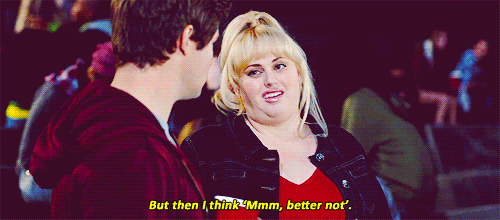The Book: Every Day by David Leviathan
And it's About?

Every day a different body. Every day a different life. Every day in love with the same girl.
There’s never any warning about where it will be or who it will be. A has made peace with that, even established guidelines by which to live: Never get too attached. Avoid being noticed. Do not interfere.
It’s all fine until the morning that A wakes up in the body of Justin and meets Justin’s girlfriend, Rhiannon. From that moment, the rules by which A has been living no longer apply. Because finally A has found someone he wants to be with—day in, day out, day after day
In a Word, it was... Whelming
This 20 Things I Hate About You reference perfectly describes how I felt about Every Day: I wasn't underwhelmed, I wasn't overwhelmed, I was just kind of... whelmed.
I ordered this book from the US in hardcover because I actually just could not wait for it to be available in local bookstores, and really couldn't wait until the paperback was published. Initially, what had really excited me about the book was just stumbling on the blurb. A different body? Every day? No gender, no race, no home or family - and yet in love with the same girl? Most interesting for me was the question of if and how one girl could love someone who could be anyone and anywhere every morning? Spoiler alert: with great difficulty.
I flew through the book in one sitting, devouring it over the course of a few hours. Often, it occurred to me that South Africans are quite preoccupied with concepts of self-identity and self-identification. I think it's part of the perspective that informs our progressive constitution but also much of what fuels our continued other-ing of anyone who self-identifies as a different race, gender, sexual orientation, whatever. I'm not making a statement on whether that other-ing manifests in a constructive or destructive way but I do think that the idea of being Other from every other possible category of human being and starting to think about how you would handle that on a day-to-day psychological level is a useful thought experiment for everyone and certainly for South Africa's born-frees: a new generation of SAFAs who have so much to benefit from redefining how South Africans self-identify and group-identify. More than these kind of meta issues,
Every Day featured complications beyond the love-struck teens and their unique philosophical quandary to keep the action going. The plot was paced very well, answers given only led to more questions, the love-vibes between the young characters were that great YA cocktail of awkward, stumbling, reckless, limitless longing. The writing was lyrical but not verbose. You came to have a sense of familiarity with A even though he/she was a stranger in every chapter. Everything was appropriately swoony or appropriately heartbreaking or appropriately thought-provoking but.
But, at a certain point, A's body-snatching started to feel quite staged. It is a novel so, technically, all of it is staged, but this was sort of after-school special, Public Service announcement, kind of staged. Maybe one day A is a drug addict, maybe then A lands in the body of someone with an eating disorder and then someone who is obese. So the reader gets to learn about the complexities and difficulties of being an addict/having an eating disorder/being obese and it's all very PC and many lessons are learnt and we all grow as people but it's a little boring after a while, you know?
I can't take away from Leviathan's skill and creativity as a storyteller. I also can't take away from a great premise and a love story with all the makings of the Time Travellers Wife: Teen Edition. I didn't exactly like A but I did feel for his situation and I certainly would have Rhiannon, his/her love interest, over for a glass of wine and some light snacks. Still, I don't really like being preached to, however well-meaning or worthy the sermon is. Scanning the overwhelmingly positive reviews on Goodreads, I saw that the less than impressed reviews had much the same concerns as I did.
So would I recommend it? To a teenager, sure. To someone who is a little more A than Y? Probably not. Definitely, a worthy read. More specifically, a read worthy of its praise but also worthy of its criticism.

